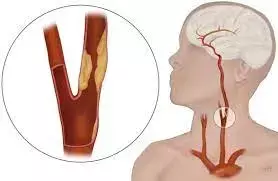- Home
- Medical news & Guidelines
- Anesthesiology
- Cardiology and CTVS
- Critical Care
- Dentistry
- Dermatology
- Diabetes and Endocrinology
- ENT
- Gastroenterology
- Medicine
- Nephrology
- Neurology
- Obstretics-Gynaecology
- Oncology
- Ophthalmology
- Orthopaedics
- Pediatrics-Neonatology
- Psychiatry
- Pulmonology
- Radiology
- Surgery
- Urology
- Laboratory Medicine
- Diet
- Nursing
- Paramedical
- Physiotherapy
- Health news
- Fact Check
- Bone Health Fact Check
- Brain Health Fact Check
- Cancer Related Fact Check
- Child Care Fact Check
- Dental and oral health fact check
- Diabetes and metabolic health fact check
- Diet and Nutrition Fact Check
- Eye and ENT Care Fact Check
- Fitness fact check
- Gut health fact check
- Heart health fact check
- Kidney health fact check
- Medical education fact check
- Men's health fact check
- Respiratory fact check
- Skin and hair care fact check
- Vaccine and Immunization fact check
- Women's health fact check
- AYUSH
- State News
- Andaman and Nicobar Islands
- Andhra Pradesh
- Arunachal Pradesh
- Assam
- Bihar
- Chandigarh
- Chattisgarh
- Dadra and Nagar Haveli
- Daman and Diu
- Delhi
- Goa
- Gujarat
- Haryana
- Himachal Pradesh
- Jammu & Kashmir
- Jharkhand
- Karnataka
- Kerala
- Ladakh
- Lakshadweep
- Madhya Pradesh
- Maharashtra
- Manipur
- Meghalaya
- Mizoram
- Nagaland
- Odisha
- Puducherry
- Punjab
- Rajasthan
- Sikkim
- Tamil Nadu
- Telangana
- Tripura
- Uttar Pradesh
- Uttrakhand
- West Bengal
- Medical Education
- Industry
Micronet-covered carotid artery stent provides superior cerebral protection after stenting: Study

As compared to a conventional stent, the Micronet covered stent provides superior cerebral protection during and after carotid artery revascularization, as per new study published in the JACC journal.
The aim of this study was to compare procedure-related ipsilateral cerebral embolism with a conventional (Acculink, Abbott Vascular) versus a MicroNet-covered (CGuard, InspireMD) stent in carotid artery stenting (CAS).
The MicroNet-covered stent may reduce periprocedural cerebral embolism in CAS, but level 1 evidence is lacking.
A total of 100 consecutive patients were randomized 1:1 to filter-protected CAS using the Acculink or the CGuard device. The study was powered for its primary endpoint of at least 50% reduction in ipsilateral diffusion-weighted magnetic resonance imaging lesion average volume 48 hours postprocedure (blinded external core laboratory analysis).
The Results of the study are as follows:
The baseline characteristics of the study groups were similar.
Eighty-two (total volume = 18,212 mm3) diffusion-weighted magnetic resonance imaging postprocedural cerebral lesions occurred in 26 Acculink-treated patients and 45 lesions (total volume = 3,930 mm3; 78.4% reduction) in 25 CGuard-treated patients.
New cerebral lesion average volume was 171 mm3 vs 73 mm3 per affected patient and 222 mm3 vs 84 mm3 per lesion (Acculink vs CGuard). In lesion-affected patients, the average sum of lesion volumes was 701 mm3 vs 157 mm3
The Acculink significantly increased the risk for multiple (≥5) cerebral lesions
At 30 days, new permanent (fluid-attenuated inversion recovery) lesion prevalence was 3:1 with total permanent lesion volume 7,474 mm3 vs 574 mm3
There were 6 vs 0 new ipsilateral lesions and 2 versus 0 strokes.
Thus, the researchers concluded that the MicroNet-covered stent significantly reduced periprocedural and abolished postprocedural cerebral embolism in relation to a conventional carotid stent. This is consistent with the MicroNet-covered stent's sustained embolism prevention, translating into cerebral protection not only during but also after CAS. The present findings may influence decision making in carotid revascularization.
Reference:
Randomized Controlled Trial of Conventional Versus MicroNet-Covered Stent in Carotid Artery Revascularization by Andrey Karpenko et al. published in the JACC journal.
J Am Coll Cardiol Intv. 2021 Nov, 14 (21) 2377–2387
Dr. Shravani Dali has completed her BDS from Pravara institute of medical sciences, loni. Following which she extensively worked in the healthcare sector for 2+ years. She has been actively involved in writing blogs in field of health and wellness. Currently she is pursuing her Masters of public health-health administration from Tata institute of social sciences. She can be contacted at editorial@medicaldialogues.in.
Dr Kamal Kant Kohli-MBBS, DTCD- a chest specialist with more than 30 years of practice and a flair for writing clinical articles, Dr Kamal Kant Kohli joined Medical Dialogues as a Chief Editor of Medical News. Besides writing articles, as an editor, he proofreads and verifies all the medical content published on Medical Dialogues including those coming from journals, studies,medical conferences,guidelines etc. Email: drkohli@medicaldialogues.in. Contact no. 011-43720751


